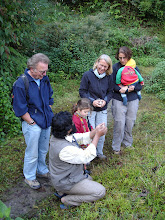a policy workshop for administrators, political leaders, developers, ambassadors, academicians, trade & industry concerns, NGOs, responsible tourism organizations and all concerned for establishing global peace...
29th & 30th March, 2010. Shantiniketan. Bolpur. West Bengal. India.
Organized by Department of History, Visva Bharati University,
In collaboration with ICRT-India, IIPT, ACT & Initiated by Help Tourism.
INTRODUCTION: Several regions in East & Northeast India share common land borders with neighbouring countries like Bangladesh, Bhutan, Nepal, Myanmar and Tibet. These regions once had the privilege to have several trade routes, which were connected to the historical Silk route. There were several developments which took place then and became the landmark in the history of the world, like the spreading of Buddhism etc helping to bring peace to the region and nurturing better ‘people to people relations’.
Today, the trade routes have been closed inspite of the easy land connectivity that exists and has been a major reason for poverty and terrorism for the different countries in the bordering areas. This further has been a pressure on the rich natural resources, which are the last frontiers of the global biodiversity remains of the subcontinent. The people across the borders have now through generations have awaited the old cultural and trade relations. The capitals now need to understand this emotion & need of the time. Several countries across the globe have shown sense of better cross-better relations in tune with the demand of time and have achieved positive results.
We discuss in this workshop, the scope of opening these borders for the purpose of tourism and allow some fresh economical activities for the bordering areas. This can then be followed by developing policies for other trade & cultural interaction. The goal of this exercise will be to help conserve the biodiversity hotspots and help establish peace in the area.
THE VENUE: Santiniketan was previously called Bhubandanga (named after Bhuban Dakat, a local dacoit), and owned by the Tagore family. Rabindranath's father, Maharshi Debendranath Tagore, found it very peaceful and renamed it Santiniketan, which means abode (niketan) of peace (shanti). It was here that Rabindranath Tagore started Patha Bhavan the school of his ideals, whose central premise was that learning in a natural environment would be more enjoyable and fruitful.
Later, this developed into an International University, Visva Bharati, the India that opens its window to the world. Several cultures and traditions of the world were incorporated with the deep rooted Indian cultures as a part of the curriculum. Through years, Shantiniketan witnessed the footfalls of ‘global leaders for peace’.
A step towards 150 years of Rabindranath Tagore: Rabindranath Tagore, born on May 7, 1861, got the Nobel Prize for literature in 1913 – the first Asian to get the coveted award. “In May, 2011, the world will celebrate the 150th birth anniversary of Gurudev Rabindranath Tagore. A national committee of distinguished experts will advise on the events to commemorate the life and works, as well as the values and ideals, of Tagore,” the Prime Minister of India, Manmohan Singh said on 16th January, 2010.
Referring to Bangladesh Prime Minister Sheikh Hasina’s recent visit to Delhi, Manmohan Singh said the two of them had agreed to oversee the joint celebrations of the event in a befitting manner.
Rabindranath Tagore wrote in a letter addressed to the Sino-Indian Society in 1934:- `The truth we received when your pilgrims came to India and ours to you - that is not lost even now. What a great pilgrimage was that! What a great time in history!` Tagore went on to say, `It is our duty to-day to revive the historic spirit of that pilgrimage following the ancient path which is not merely a geographical one but the great historic path that was built across difficult barriers of race differences, and differences of language and tradition reaching the spiritual home where man is one in bonds of love and co-operation`.
Year 1936, Tagore sent a message to the World Peace Congress at Brussels, emphasizing that peace must be built on the strength of the just, not on the weariness of the weak. To deserve peace they must pay its full price. “The strong must cease to be greedy, and the weak must learn to be bold.”
Expected Delegates
Government Policy Makers & Tourism Industry Representative speakers 15 heads
History Department 15 heads
International Media 10 heads
Journalism & Mass Communication 02 heads
Inaugurator, Keynote speaker & Guest Presenters 05 heads
ICRT-India, IIPT, ACT & Help Tourism 08 heads
Volunteers 05 heads
Program outline:
29th March, 2010: Venue- Museum Hall (AIHCA)
08:30 Registration & distribution of registration kit.
09:30 to 11:00 Inauguration & Keynote Address.
Tea Break
11:15 to 13:00 Cross-Border Tourism Circuits and future scope by the different countries and India’s Northeastern States and the state of West Bengal.
Lunch
14:00 to 15:30 Living Buddhism Circuit in East Himalaya (Guru Padmasambhava Trails), presentations by the different Himalayan countries & states.
Tea
15:45 to 17:45 Cross-Border Natural, Cultural, Social and Trade history issues in academic sessions by field organization representatives, scholars & researchers.
18:30 to 19:30 Cultural program.
30th March, 2010: Venue- Bedi & Chata (Under the tree)
09:00 to 10:45 Wrap up sessions for Policies & Circuits for Cross-Border Tourism.
Tea
11:00 to 13:00 Presentations on the proposed policies & circuits for Cross-Border Tourism.
Lunch
14:00 to 15:00 Shantiniketan Declaration.
For details, please contact:
Joint Coordinator, Arunava Das, Assistant Professor of History. 9831835213, 9474731090.
Raj Basu, Help Tourism. 9733000444. E.Mail:actraj@gmail.com & info@helptourism.com.
Subscribe to:
Post Comments (Atom)


No comments:
Post a Comment